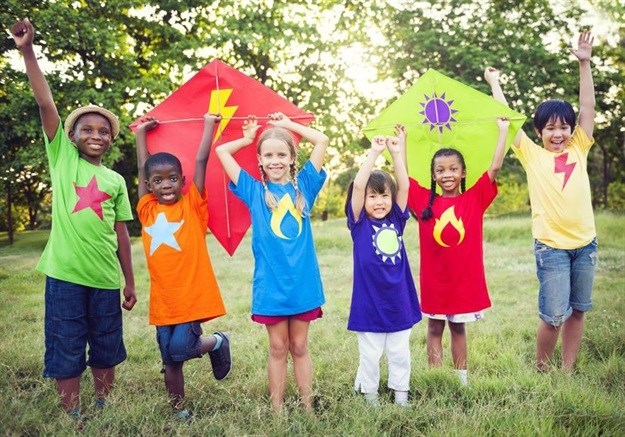Oldacre says that, while there’s currently an interest in technology learning tools appropriate for early childhood development (ECD), such as educational games and apps, it is essentially more important for children to have real-world interactions in order to learn core 21st century life skills. These include critical thinking and problem-solving; the ability to communicate well; being able to collaborate with others; and creativity, which, Oldacre says, are fundamental survival skills in today’s fast-paced, ever-changing, globally-connected world.
Critical learning experiences of play
Many people believe that Grade R is “just about play”, but Oldacre says play is the root of many critical learning experiences. “Children learn through their senses, so they need to spend time touching, seeing, hearing, tasting and smelling. They also learn through doing, so they need many opportunities to experience things for themselves.”
Whilst the latest app may be popular, it’s often the “old-fashioned” activities that encourage the use of all five senses. Oldacre therefore suggests that children are encouraged to play outside, build forts, work as a team and to be creative in their activities. Interacting with a screen doesn’t necessarily offer the same opportunities for experiential learning as those gained through physical experiences.
In fact, studies have shown that active play and movement are at the crux of children’s learning. This is why Grade R should focus on activities that get children moving and engaging all senses, rather than solely on teaching them to sit still and to be quiet.
To help children learn to self-regulate (a precursor to being able to pay attention), Grade R teachers and parents can also model good behaviours. For example, they can gently make children aware of learning materials, and provide opportunities to use them appropriately. They can also assist children to develop a way of speaking about and understanding self-regulation. For example, “I have lots of energy right now.” And they can model helpful ways of handling this, for example by asking children if they need a break.
Oldacre feels there should also be a focus on encouraging children to begin to take responsibility for themselves and on learning to collaborate with others at this age. This can, however, be difficult for Grade R teachers and parents.
“Young children are typically ego-centric, and so feel like the world revolves around them,” Oldacre says. “This can make group work activities challenging, as children may struggle to interact well with their peers. I feel that teachers need to persevere with these types of activities, and parents should encourage play dates with other children, even when it’s not all fun and games. These sorts of interactions are important for children’s social and emotional development.”
Grade R teachers have a tough job, as they’re essentially laying the groundwork to prepare “little ones” for schooling, but also for life. Grade R is a key year in a child’s educational development, as it focuses on helping children to take important steps towards independence, as well as teaching them critical social skills.




































